Elevating the User Experience to Drive Deeper Engagement
A case study documenting the design and strategy project for EnergyWall Windows & Doors to overcome outdated branding across web and print materials and achieve establish updated, modern branding and implement it in a new, exciting website design.
My Role
Lead UX Designer, Strategist
Client/Company
EnergyWall Windows & Doors, window manufacturing
Timeline
12 weeks
Tools & Methods
Dreamweaver, Stakeholder Workshops, User Testings, Competitor Research
Outdated Systems Led to High outdated, bloated design and Low Low brand recall
The existing website, digital presence and print materials was built on legacy technology and suffered from a fragmented user experience. Users, primarily Homeowners seeking a high quality, premium window brand, B2B contractors, struggled to complete key tasks like performance features and upgrade options and requesting dealer information, digital warranty registration, and styling a window or entry door, leading to immense frustration and requiring excessive support time.
“Our online presence didn’t reflect the premium quality of our product. The designs felt disconnected.”
— Regional Sales Manager
Project Objectives
Primary Goal: Increase Conversion rate from visit to quote request by 30% within six months.
UX Goal: Reduce the average time taken for initial product selection time by 40%.
Technical Constraint: Ensure seamless integration with the existing Digital Warranty Portal.
Process & Approach
Discovery, Definition, and Iterative Design
Deep Dive Research
I performed Competitor Research and Stakeholder Workshops to define the core brand attributes and identify key pain points, such as the difficulty finding specific product information on the old site. This validated the need for a simplified Information Architecture.
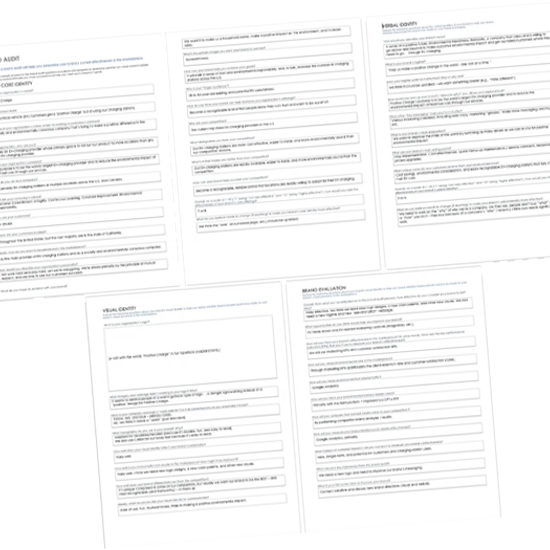
Defining the Strategy
Leveraging insights from User Testings, I created a new style guide focusing on visual consistency across all platforms; web, print, and mobile applications. I then translated this into high-fidelity wireframes that prioritized the visual flow and product filtering options.
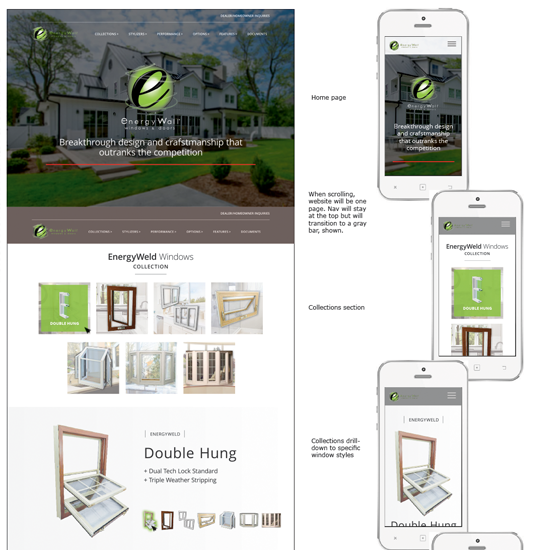
Testing and Validation
In the final planning stage, prototypes were tested to ensure both usability and performance standards were met. This testing confirmed that consolidating product streamlined the experience, improved load times, enhanced user flow, and reinforced the premium brand experience.
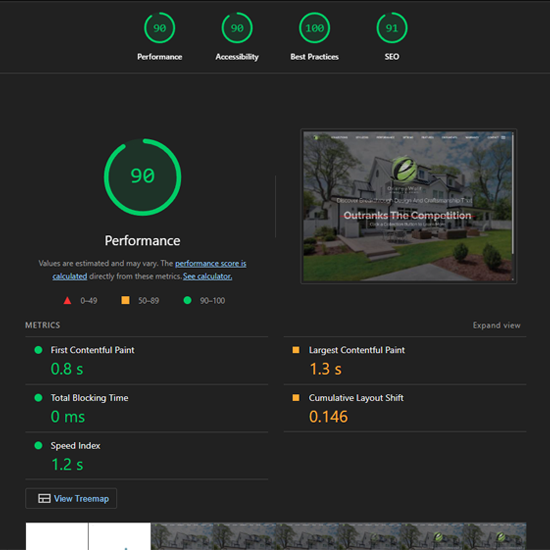
Unified Design and Streamlined Product Experience
Key Feature 1: Consistent, High-Impact Home Page Design
The entire Home page screen was redesigned to immediately establish brand trust. By leveraging a single, cohesive color palette and a clear, modern typographic hierarchy, we ensured that the EnergyWall identity was instantly recognizable and visually exciting across all devices.
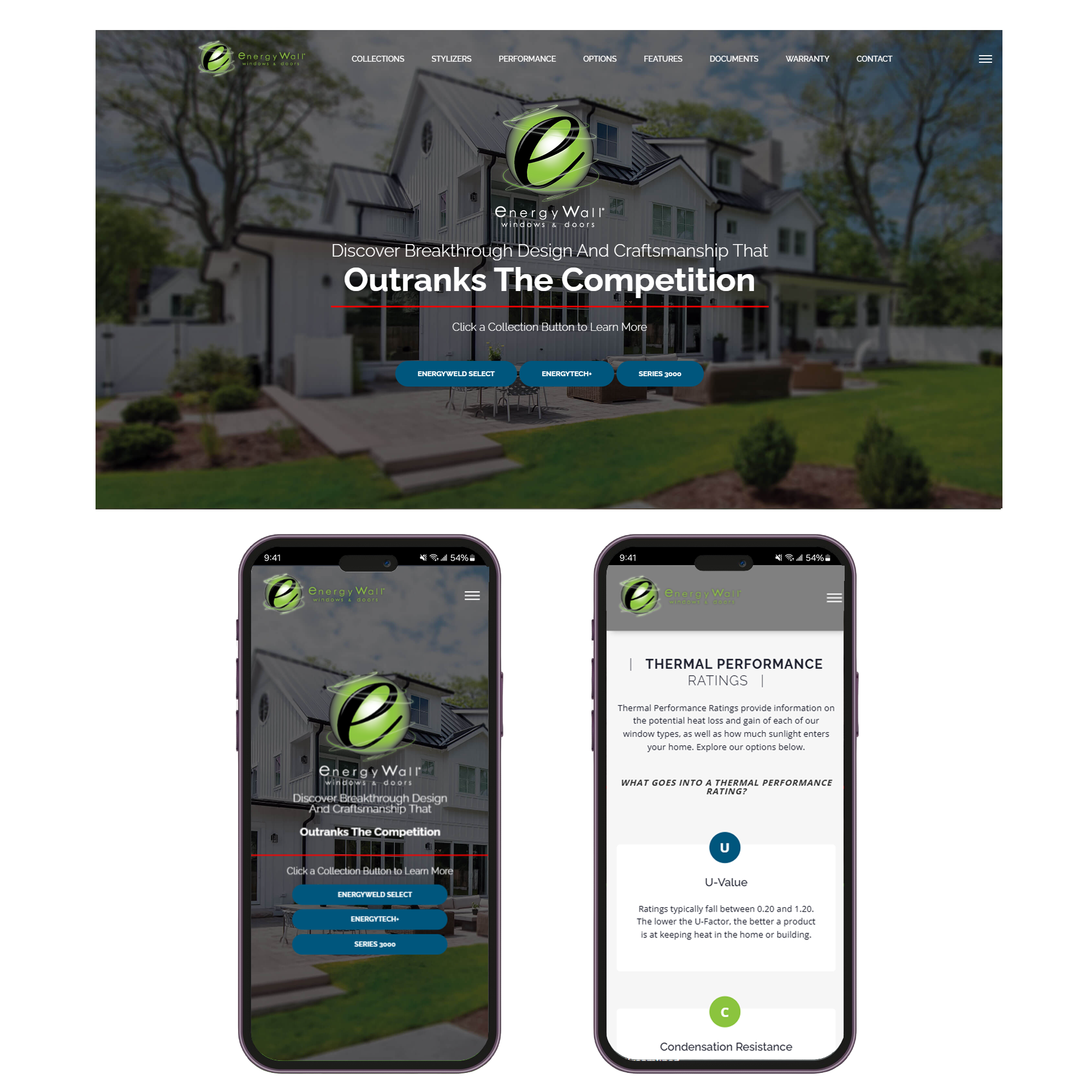
Key Feature 2: Modern, Sleek Product Presentation
I streamlined the product discovery flow with a Modern, sleek design with easy to find features and specs. Crucial information like performance ratings and material options were prioritized and presented visually, eliminating the old, text-heavy pages that previously caused user drop-off.
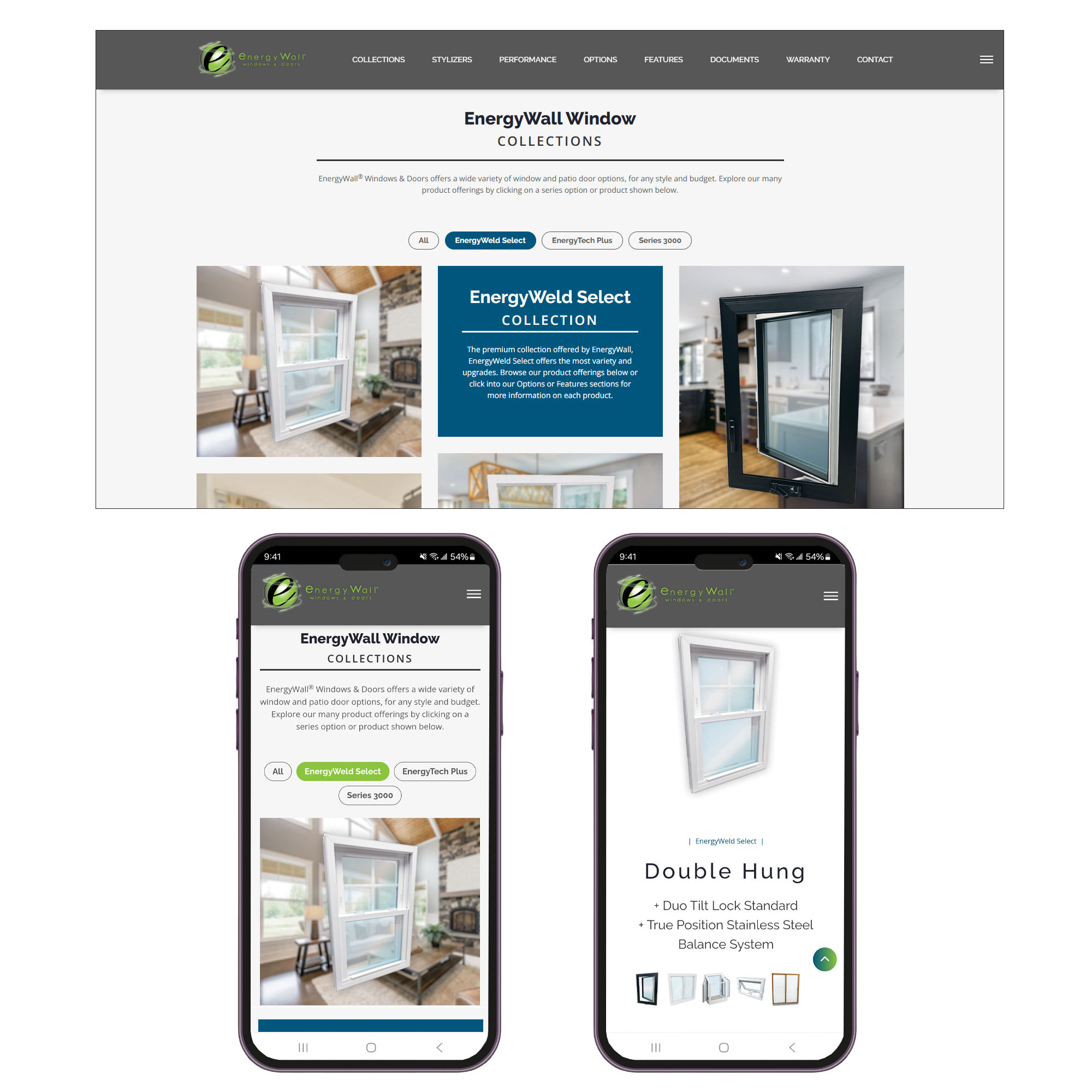
Results & Impact
Metrics that Matter
The comprehensive redesign achieved its core goal of unifying the brand presence and revitalizing the user experience, leading to quantifiable business success in the first quarter post-launch.
User Engagement Rate (Session Duration)
Average Session Duration
Website Bounce Rate
Key Takeaway
The essential role of a single source of truth (brand guidelines) in complex digital and print projects. Consistency is not just aesthetic; it is a critical driver of user trust and conversion, especially for premium products like EnergyWall Windows.
What’s Next for EnergyWall?
Phase II: Developing a B2B Portal for Contractors to manage quotes and orders.
Optimization: Implementing an AI-driven product recommender based on regional climate data.